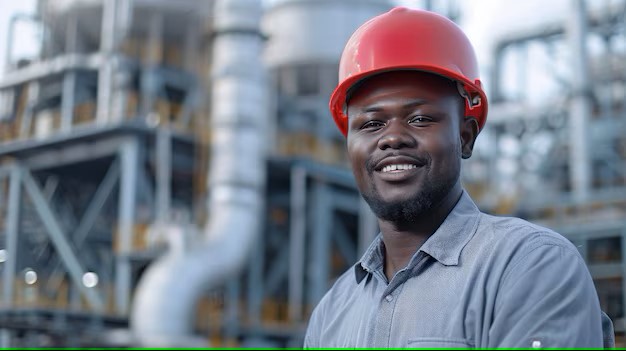Gas Conditioning and Processing: Focus on LNG – G-4 LNG 24th – 28th November, 2025
- Description
- Reviews
Course Overview
This 5-day course focuses on the principles, processes, and technologies involved in gas conditioning and processing, with an emphasis on liquefied natural gas (LNG) applications. Participants will explore the various stages of gas processing, from raw natural gas treatment to LNG production, focusing on the critical factors for ensuring product quality, regulatory compliance, and energy efficiency. The course also covers the integration of advanced technologies and operational best practices specific to LNG facilities.
Course Objectives
By the end of this course, participants will be able to:
-
Understand the key processes in gas conditioning and LNG production.
-
Identify and manage the challenges associated with gas treatment and processing for LNG applications.
-
Apply best practices in gas conditioning to optimise LNG plant operations.
-
Explore the latest technologies in LNG processing and their operational impacts.
-
Address regulatory requirements and environmental considerations in LNG production.
-
Implement effective troubleshooting strategies to resolve operational issues in gas conditioning and LNG plants.
Target Audience
-
Engineers and operators working in LNG facilities.
-
Gas processing professionals involved in LNG operations.
-
LNG plant supervisors and technical staff.
-
Environmental compliance officers and energy managers in LNG operations.
-
Technicians and engineers interested in enhancing their knowledge of LNG conditioning processes.
Daily Agenda
Day One: Introduction to Gas Conditioning and LNG Fundamentals
-
Overview of Gas Conditioning: Introduction to gas conditioning, with a focus on its role in LNG production.
-
Natural Gas Composition: Understanding the components of natural gas and their impact on processing.
-
The LNG Industry: Basic concepts of LNG, including its production, transportation, and storage.
-
Gas Treatment Techniques: Common gas conditioning techniques, including removal of impurities (sulphur, CO2, water, etc.).
-
Gas Sweetening: Methods of removing hydrogen sulfide (H2S) and carbon dioxide (CO2) to prepare gas for liquefaction.
-
Introduction to G-4 LNG Process: Overview of G-4 LNG technologies and their application in gas processing.
Day Two: LNG Liquefaction Process and Gas Dehydration
-
Dehydration Processes: The importance of dehydration in preventing hydrate formation during LNG production.
-
Absorption and Adsorption: Techniques for removing water, CO2, and other impurities from natural gas.
-
LNG Liquefaction Cycle: Detailed analysis of the liquefaction process, including refrigeration and cooling methods.
-
Cryogenic Systems: Components and operation of cryogenic systems used in LNG production.
-
Gas Processing Equipment: Equipment used in LNG processing, including compressors, exchangers, and separators.
-
Energy Efficiency in Liquefaction: Methods for improving energy efficiency during the liquefaction process.
Day Three: Acid Gas Removal and Other Contaminant Removal Techniques
-
Acid Gas Removal: Methods for removing hydrogen sulfide (H2S) and other acid gases from raw natural gas.
-
Physical vs. Chemical Absorption: Comparison of absorption techniques used in acid gas removal.
-
Mercury Removal: Techniques for removing mercury from natural gas to prevent contamination of LNG.
-
Amines and Solvents: The role of amines and solvents in gas treatment processes for LNG production.
-
Sulphur Recovery Units (SRUs): Overview of sulphur recovery systems and their integration into LNG processing.
-
Troubleshooting Common Issues: Identifying and addressing challenges in acid gas and contaminant removal systems.
Day Four: LNG Storage, Transport, and Regulatory Compliance
-
LNG Storage Systems: Overview of LNG storage tanks, including their design, operation, and safety features.
-
LNG Transport: Challenges and technologies related to the transport of LNG, including cryogenic tankers and pipelines.
-
Regulatory and Environmental Considerations: Key regulations governing LNG processing and storage, including safety and environmental compliance.
-
Carbon Emissions and Control: Strategies for reducing carbon emissions in LNG production and transportation.
-
LNG Safety Standards: Industry safety standards, including risk assessments, emergency response planning, and hazard mitigation.
-
Case Study: LNG storage and transport compliance issues and solutions.
Day Five: Advanced LNG Technologies and Troubleshooting in Gas Processing
-
Advanced LNG Processing Technologies: Cutting-edge developments in LNG production and processing technologies.
-
Integration of G-4 LNG: The use of G-4 LNG technologies for improving plant performance and efficiency.
-
Troubleshooting LNG Systems: Common issues in LNG plants and troubleshooting strategies for gas processing, liquefaction, and storage systems.
-
Optimisation of LNG Operations: Best practices for maximising efficiency, throughput, and product quality in LNG plants.
-
Energy and Cost Optimisation: Techniques for reducing operational costs and energy consumption in LNG production.
-
Final Assessment: Review of key concepts, troubleshooting exercises, and practical scenarios related to LNG processing.
Why Choose this Course?
This course provides comprehensive knowledge of gas conditioning and LNG production, combining theoretical principles with practical applications in the LNG sector. Participants will gain hands-on experience in addressing operational challenges and optimising LNG processes. The course’s focus on G-4 LNG technologies ensures that participants are equipped with the latest tools and techniques to enhance plant performance and energy efficiency.
Learning Outcomes
Upon completion of the course, participants will:
-
Be proficient in the principles and processes involved in gas conditioning and LNG production.
-
Understand the technological advancements in LNG processing, including G-4 LNG technologies.
-
Be able to optimise gas conditioning and LNG production for efficiency and cost-effectiveness.
-
Demonstrate knowledge of safety, regulatory, and environmental standards in LNG operations.
-
Be equipped to troubleshoot common issues in LNG plants and improve system performance.





